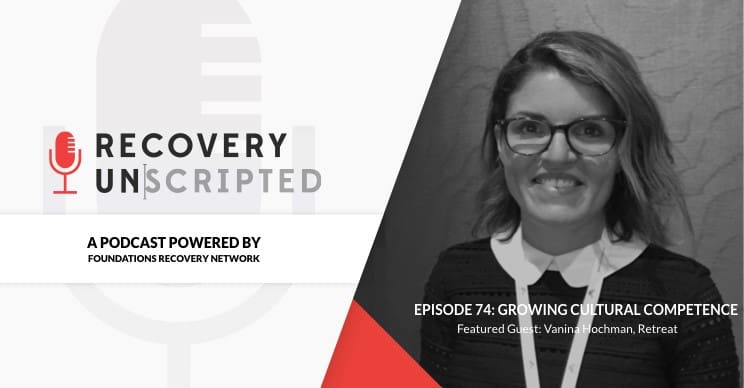Growing Cultural Competence with Vanina Hochman and Recovery Unscripted
Vanina Hochman, Community Relations Representative of Retreat Premier Addiction Treatment Centers, sat down for an interview with the Recovery Unscripted podcast after her recent presentation at the Innovations in Behavioral Healthcare conference in Nashville, Tennessee. Her conversation with podcast host David Condos explores the idea of cultural competence in mental health care as well as some of the important concepts that can better equip listeners to reach patients with a wide array of cultural backgrounds.
Based on her 15 years of clinical experience and her passion for understanding behaviors, she has been able to outreach specifically to the Hispanic community in South Florida. Through her soft-spoken voice, you can tell she is a natural fit for this task and has the passion to truly understand behaviors and help others heal.
One point Hochman touches on in the podcast is that culture values and beliefs can often be a barrier to treatment, since many individuals may not be able to fully connect with treatment providers or peers who come from a different way of living life. She also advocates for all practitioners to grow their own culture competence, which means being open minded, curious and willing to learn about other cultures. This understanding can help a patient feel comfortable and removes a barrier to treatment.
Through all of this, she reminds us of the importance of providing quality care. It all starts with diagnosis. If someone is misdiagnosed due to a lack of communication or understanding, it can negatively impact the quality of treatment they receive from that point forward. No matter what kind of treatment it is, all patients need to feel connected with their providers in order to truly heal. Love, trust and connection are the keys to long-term recovery.
Listen to the podcast interview here!
Listen to Hochman’s full interview with Recovery Unscripted on Apple Podcasts, Spotify or the podcast’s website to hear more about how culture can affect a community’s view of mental health and how to grow your cultural competence in reaching others.




